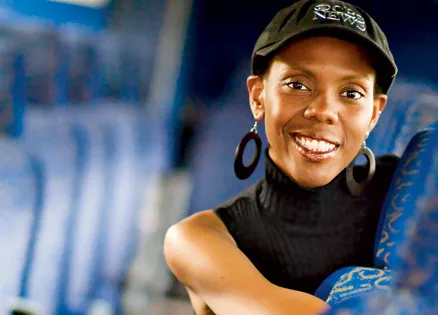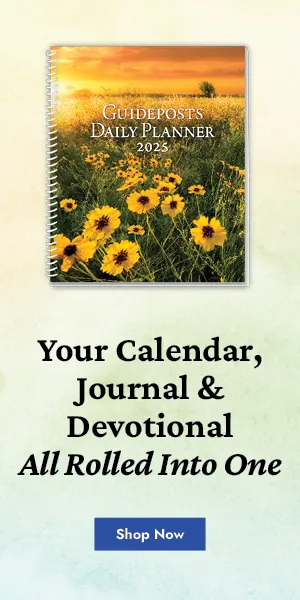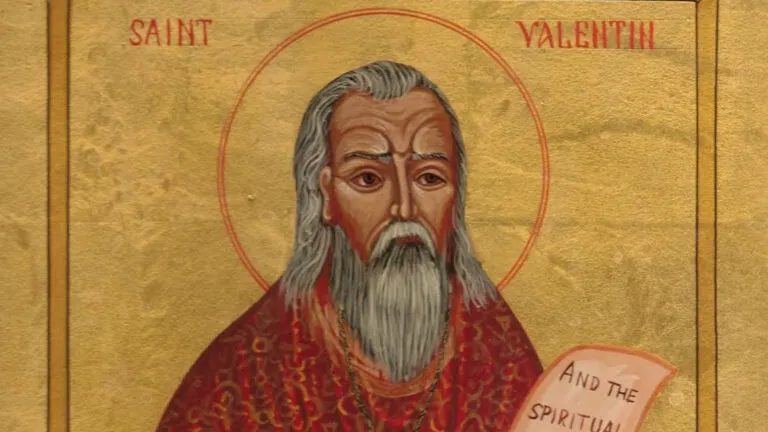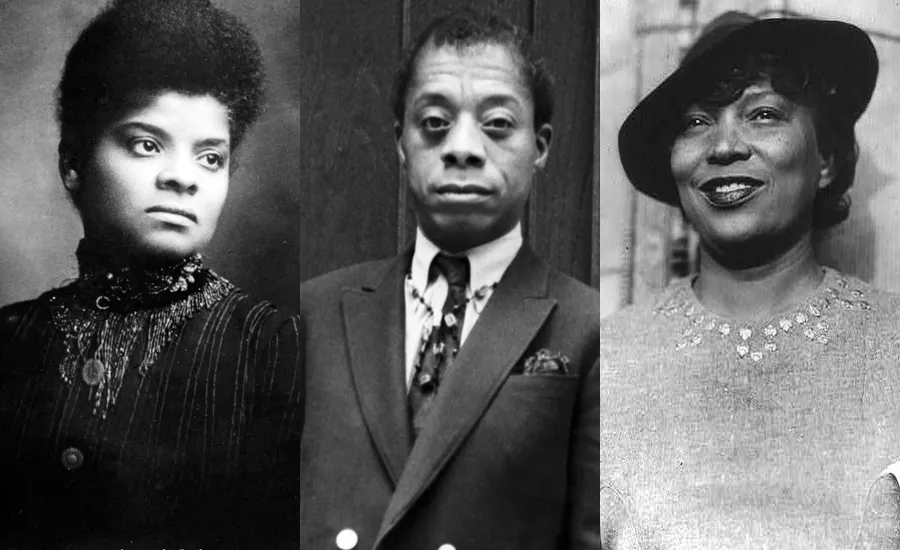I’m a school bus driver. I’m up before the sun, getting kids where they need to go in inner-city Los Angeles—to magnet schools, remedial schools and everything in between. The world boards my bus—college-bound immigrants, strutting football players. Then there are the kids I call the 2-Live-Crews —angry trouble-makers. Their parents are mostly missing and they live in a world of gangs, drugs and grownups whose only interest in them is the money they might spend on rap music and one-hundred-dollar sneakers. On the bus, though, it’s my rules: “No getting up, no acting up. Period.” I run a tight ship.
On June 22, I filled a bus with 22 teens, some from the projects, and headed out from an intersection two miles from where the 1992 L.A. riots started. I didn’t drive to school. We turned onto the interstate, aiming for a new destination—all the way across the U.S. Sound crazy? Stay with me a minute.
I became a bus driver by accident. In high school I was a lot like the kids I drive now, getting by with Cs and Ds. One of my girlfriends invited me to take a test with her to become a school bus driver. “It’s a good job,” she said. Job? I didn’t need a job. I took the test anyway and passed. When I graduated, I drove a bus. I was 19, not much older than my students, and they bullied me. Sometimes I wanted to quit. But my dad always said, “Tanya, get a job with benefits.” Working for the Los Angeles Unified School District, I had health insurance and a pension. And money for my real passion—travel.
You see, Mom died when I was six. I got passed between my aunt and my dad. Wherever I lived, though, I always went to summer camp and visited relatives on the East Coast. Seeing those faraway places—Pennsylvania, West Virginia, Louisiana—I realized the world was much bigger than south L.A. I spent some of my first paychecks on plane tickets. In the beginning I went by myself. Then with my godchildren, the son and daughter of a girlfriend from high school. I was young and naïve—I even had to look up the word godparent. But when I learned my responsibilities, I decided one thing I could do: expose the kids to life beyond L.A. I found travel deals and took them to Boston, New York, Phoenix. Soon their friends asked if they could come. Weekends became trips to Magic Mountain, museums, new cities. The trips were educational. I made the kids budget their money and took them to stores to show them how to dress for work.
One day, corralling yet another group of 2-Live-Crews, I decided the kids on my bus needed more than discipline. They needed what my godchildren had—a grownup spending time with them, modeling good behavior, widening their horizons. They needed to travel.
So I planned a trip. I knew how to drive a bus. And I knew how to travel with kids. I announced one morning that any student who completed an essay explaining why they wanted to go could join me on the road to San Francisco. Some kids laughed. But others wrote essays, and when they returned from our trip, the stories they told got around. I tried some longer trips, and by summer I had a small non-profit called Godparents Youth Organization, a few local sponsors and a team of six adult chaperones—bus-driver friends and others in the community. Together, we planned our most ambitious trip yet, a month-long drive across the country to visit colleges, civil-rights monuments and historic cities.
We left L.A. on the evening of June 22, the kids slumped in a 45-foot-long, black rented motor coach. I asked someone to say a prayer and said a silent one myself. These were not easy kids—some were involved with gangs or drugs, some had been tossed from school to school. One girl’s father was in prison. This is the big time, Lord. We are completely at your mercy.
We drove all night and day to a Best Western in Albuquerque—I got the chain to give us a discount, and I always looked for hotels with a pool. The girls sat in back, the boys in front—my rule. In the mornings the kids wrote in journals and read a chapter from a book I gave them—The Purpose-Driven Life, by Rick Warren. They didn’t like it at first—”It’s boring, Miss Tanya!”—until one of our mentors, Rhonda Dennis, began reading it aloud like a preacher. “Can I get an amen?” she shouted. And the kids laughed and read along with her.
In Atlanta and Birmingham we visited Dr. Martin Luther King, Jr.’s church and learned about a black church bombed by white supremacists. In Montgomery, the kids boarded a historic bus at the Rosa Parks Library and Museum and felt for themselves the sting of segregation. We visited historically black colleges and a museum in Baltimore that told the story of African-Americans, from slavery to modern accomplishments, in wax re-enactments. By the time we pulled into Pennsylvania on a rainy night, the kids were making connections.
“Back then it was blacks and whites. Now it’s Crips and Bloods,” said Sam, who’s 13 and lives in Watts. “We’re killing ourselves.”
We awoke in Philadelphia on July 4 and took a walking tour of America’s birthplace. The guide showed us where slaves were sold in a park behind Independence Hall, and we ran into a man dressed as Benjamin Franklin, re-enacting the days leading up to the Revolution. The guide also showed us a house where MTV filmed one of its Real World shows. The kids perked up. “Can we go in? We live on MTV!”
That afternoon, we drove to the spacious suburb of Dresher, where Vernon Walker, an attorney who is friends with one of our Los Angeles sponsors, had invited all the kids for a barbecue. Neighbors stared as our bus pulled up and the kids piled out. Soon we were spread on Vernon’s lawn, playing volleyball and badminton, while chicken, burgers and hot dogs were prepared for the grill.
A girl named Shamika, who’s 16, asked Vernon, “Do you get nervous in court?”
“I’m nervous till I say my first words, ‘May it please the court?’ After that, it’s on!” he said, laughing.
Inside, a friend of Vernon’s, Huntley, was talking to John Dennis, a 16-year-old student. “Stay focused,” he said. “Keep at it, reach out. Surround yourself with kids who want to go to college. I know you’ll get there.”
By the time we left Philadelphia and headed for a tour of Princeton, all the kids were talking about what college they wanted to go to. Some said a black college. Others were awed by the ivy-drenched halls of Princeton, which we walked through with a female student tour guide.
“What percentage of students here are of other ethnicities?” John asked.
“Twenty,” she said.
“Maybe I could be at home here,” he said quietly.
On the bus a mentor had all the kids write down subjects they wanted to study in college—a list they could take to high school counselors. Shamika wrote, “Law. Dance. Criminal Justice.” Someone asked why. “I want to be a public defender,” she said. “My dad’s in jail and before we went on this trip I had to write a letter helping him get parole. I want to be part of the justice system.”
By that point, I knew the trip had succeeded. We still had many more destinations—over a dozen cities, including New York, plus colleges and museums. And once I almost sent a boy home, until he knocked on my door after midnight and we stayed up talking about his priorities. But when we arrived back in L.A. on July 18, I knew John and Shamika were aiming toward college. I knew Sam understood the true cost of ghetto violence. And I knew I’d soon be announcing another trip. Because that’s what a bus driver does. I get my kids where they need to go. To a new and better path. To all the possibilities life holds. As I told the Lord, that’s the big time.





